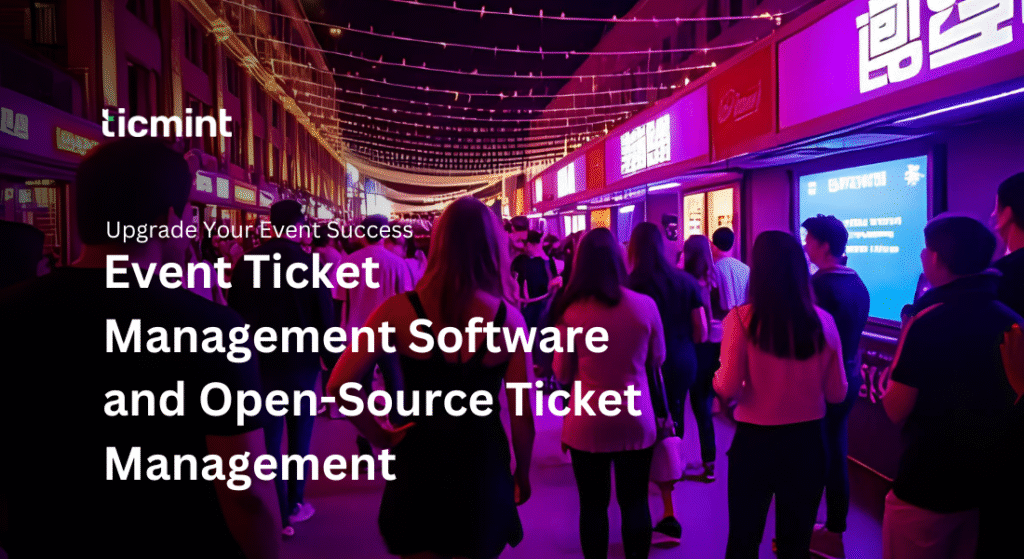
Event marketing and event management rely heavily on effective audience engagement. It can take your events from basic to memorable. If you’re looking for ways to connect with your audience and make an impact, this is the perfect spot. This post provides six essential tips to enhance event engagement. Utilizing solid plans and event management tools are key strategies to improve planning and enhance experiences for attendees.
Creating excitement before the event matters. Adding interactive parts during the event is crucial. Engaging participants through follow-up activities makes a difference. You’ll boost engagement while creating memories long after the event is done. Let’s delve into various practical tools and real-life examples. These all help you design an event that truly resonates with your audience. Find out how these tips make your event planning smooth and enjoyable for everyone involved!
Build a Foundation for Success
Success in event marketing and event management begins with understanding your audience. Analytics from event management software help you craft tailored experiences. Knowing demographics and interests matters for creating personalized events that boost attendee satisfaction.
Defining goals early is vital in planning for events. Clear objectives guide your event strategies and decisions. Whether it’s lead generation, brand awareness, or community fostering, well-defined goals are key for effective event marketing and management.
Choosing the right format is crucial in laying the groundwork. Options include on-site, virtual, or hybrid events. It’s important to select the format that serves your audience best. On-site events provide personal interaction, while virtual events can expand reach.
Maximizing engagement means planning for interaction. Incorporate features like polls and Q&A sessions into your agenda. These keep attendees involved and offer insights into their preferences. Adapting in real-time leads to a dynamic event experience.
By focusing on these foundational elements, you set the stage for event marketing and management success. This solid base improves your ability to implement innovative strategies in your event execution.
As your planning progresses, invest in advanced event management tools. These tools streamline attendee experiences and ensure smooth transitions from start to finish.
Advanced Tools for Event Marketing
Investing in advanced event management tools is key for your event marketing strategy. Platforms like Ticmint provide smooth event ticketing and management. This helps corporate planners and organizers focus on attendee experiences while overcoming logistical issues.
One big benefit of good event management software is its data analytics features. Event planners can track engagement levels before, during, and after the event. Insights from attendee registration, ticket sales trends, and engagement metrics improve future events and enhance event marketing management.
Also, event management tools integrate easily with existing systems and CRM solutions. This connection helps foster a cohesive marketing effort. By linking to marketing automation platforms, social media, and email services, organizers can run targeted communication that boosts attendee engagement and promotes the event better. These tools allow tracking of audience interactions and enable personalized marketing campaigns.
Ticmint simplifies event management with in-built marketing tools that boost ticket sales and engagement. Features like Instagram integration, SEO meta inputs, and affiliate marketing enhance visibility, while WhatsApp & email marketing drive direct communication. Revenue-boosting tools, tracking analytics (Google Analytics, Meta Pixel), and automated promotions optimize marketing efforts. Seamless CRM integration ensures smooth operations, making event marketing more effective.
In conclusion, using advanced event management tools makes organizing an event easier and enhances your event marketing efforts. Choosing the right technology can lead to better attendee experiences and higher engagement, resulting in a successful event. For more information please visit : https://ticmint.com/event-marketing/
Create Anticipation and Excitement Pre-Event
Building anticipation before your event is crucial in event marketing. Engaging the audience before time can increase attendance and enhance experiences. Here are strategies to help you build pre-event engagement.
One effective strategy is hosting virtual meet-and-greets. These sessions let attendees connect with speakers, sponsors, or other participants. This interaction fosters a community and generates buzz around the event. Participants become more invested in attending.
Also, sending personalized messages to specific groups can boost excitement. Tailored messages based on interests make attendees feel valued and increase their engagement likelihood. This tactic enhances the overall event management effort.
Dynamic social media campaigns are key for teasing event contents. Sharing engaging snippets, sneak peeks of sessions, or speaker insights can create anticipation. Hashtags can track engagement and invite potential attendees to share their excitement.
Launching pre-event surveys also collect insights from attendees. It makes them feel part of the event setup. Asking for preferences regarding content or speakers gathers useful data and creates involvement. It raises expectations for the upcoming event.
Overall, leveraging these techniques in your event marketing can significantly enhance attendee engagement. It builds a more committed and enthusiastic audience ready for your event.
Incorporate Interactive and Engaging Elements
To boost event marketing and event management tactics, it’s important to integrate interactive, engaging elements in your event. These features raise attendee involvement and enhance overall experiences, ensuring your event is truly memorable.
One good method is using live polling and Q&A sessions during presentations. This setup motivates audience participation and allows attendees to express their views in real time, creating a lively atmosphere. Events with these live interactions saw a notable increase in attendee satisfaction and retention.
Another approach is gamification. Introducing game-like features, like quizzes, contests or scavenger hunts can ramps up participant involvement and enjoyment. Events that employed gamification techniques witnessed an increase of about 35% in engagement, proving how fun competition can foster connections between attendees.
Also, organizing breakout networking sessions is crucial for deeper engagement. These smaller gatherings help meaningful conversations and relationship-building among attendees, fostering valuable connections that can continue after the event. Structured yet casual environments support networking, leading to significant exchanges.
Using live social media walls is another great way to display attendee posts and interactions instantly. This enhances attendees’ engagement with your event on social media, creating a sense of community and excitement. Events that utilized social media engagement effectively generated buzz, enhancing their brand and event visibility.
Adding these interactive, engaging elements drives higher engagement rates and develops a vibrant event culture. Attendees then feel valued and included. As you plan post-event engagement strategies, remember that relationships formed during your event can influence future loyalty and engagement.
Enhance Post-Event Engagement Efforts
After your event excitement has settled, staying connected with attendees is important. Post-event engagement influences how well your event marketing strategies work. This phase provides a chance to strengthen relationships and collect important insights for upcoming events.
A key strategy includes sending follow-up emails soon after the event. These emails should thank attendees for coming and highlight main takeaways. Personal touches create bonds, helping attendees feel valued and more willing to attend your future events.
An important tactic is to use surveys after the event. By asking for opinions, you learn what succeeded and which areas need improvement. Industry standards support feedback collection to refine event management and boost attendee satisfaction. Keep your surveys brief and focused to encourage responses.
To keep interest alive, share event highlights through newsletters or social media posts. Highlighting key moments, attendee reviews and engaging images can boost enthusiasm for your brand. This content acts as a great way to promote your next event and reaffirms the value gained from attendance.
Also, think about giving exclusive discounts for future events to encourage ongoing engagement. These incentives add value for attendees and help maintain connections with your brand. Making these offers clear in follow-up messages keeps your brand relevant and increases the chances of repeat attendance.
In sum, implementing these post-event engagement strategies helps you maintain interest and create a community eager for your next events. These efforts are vital for building long-term relationships with your audience and ensuring your event marketing efforts are effective.
Measure and Analyze Engagement Success
Event marketing and event management involve more than just planning. They also require you to measure the results of your engagement strategies. To ensure future success, track your engagement metrics after each event. This data shows what worked and what can be improved.
Begin with attendance and engagement metrics. These are key for evaluating your strategies’ effectiveness. Metrics like the number of attendees versus registrations, session attendance rates, and overall engagement help assess the success of your events. Analyzing such data reveals your most popular sessions and attendee interaction.
Analytics tools from your event management software help in collecting data. These tools give insights into the popularity of sessions, attendee behaviors, and interaction statistics like poll responses. This detail lets you see which elements generated the most engagement from participants.
Surveys from attendees are crucial for your evaluation. Assessing their feedback about experiences, satisfaction levels, and suggestions can help refine your future strategies. Direct feedback allows you to adjust event planning to match the expectations of your target audience.
Monitoring social media can give additional insights about your event’s reception. Check engagement metrics from platforms where your event was shared or discussed. This includes likes, comments, and sentiment analysis. Tracking such interactions shows what attendees found engaging and their connections with your brand.
By analyzing engagement success using these methods, you build a strong foundation for improving your event marketing and event management. This leads to successful events in the future.
FAQs on Event Engagement Strategies
Audience engagement makes events more memorable and impactful. It helps build stronger connections, increases participation, and ensures a better attendee experience.
Hosting virtual meet-and-greets, sending personalized invitations, launching teaser campaigns on social media, and conducting pre-event surveys help generate excitement.
Features like live polling, Q&A sessions, gamification, and networking breakouts keep attendees engaged, encourage participation, and create a more dynamic event experience.
Sending follow-up emails, sharing event highlights, gathering feedback through surveys, and offering exclusive discounts for future events help maintain attendee interest.
Tracking attendance, analyzing engagement metrics, collecting attendee feedback, and monitoring social media interactions provide insights into an event’s effectiveness and areas for improvement.
Conclusion
Mastering event marketing and event management is crucial for creating experiences that resonate with audiences. Lay a strong foundation, and use advanced tools for event management. Generate excitement with anticipation, interactive elements at the event, and follow up for engagement post-event. These strategies keep attendees invested. Also, measure and analyze engagement. You can refine your efforts for better results down the line.
Now is the time to put these insights into action. Implement these event engagement ideas in your next event, elevating your marketing strategy. Build meaningful connections with attendees. Remember, effective event management isn’t just planning; its creating memorable experiences that captivate audiences.
With the right strategies and tools, you can change your events into moments that not just meet your goals but also exceed your attendees’ expectations. Embrace the chance to inspire and create innovation, and watch your event succeed and soar.
About Ticmint
Ticmint is an advanced ticketing platform that revolutionizes event ticketing with a fully customizable, white-label solution, empowering event organizers and venues to seamlessly manage the entire ticketing lifecycle.
It matters because it addresses critical challenges like ticket fraud and scalping, while offering significant savings on platform fees, ensuring that every event can be managed with transparency, enhanced security, and complete control.
Explore Ticmint today and elevate your event ticketing experience!
Want to know how Ticmint can help your business?
- Save upto 35% platform fees compared to industry standard.
- 100% customisable & control. Your platform, your way. (No extra charges to remove branding)
- Enhanced transparency and security
This will redirect you to WhatsApp chat 🙂
Subscribe to our newsletter
Get fresh ideas, expert insights, and actionable strategies for memorable events—delivered straight to your inbox!



